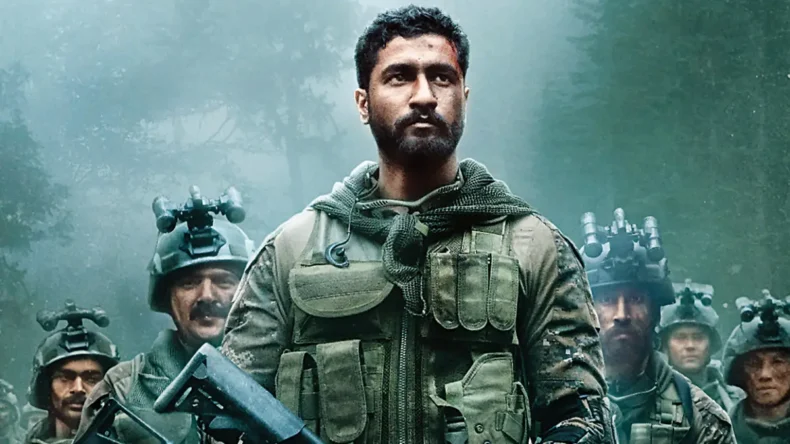After over two decades, the recent Bollywood film “Uri: The Surgical Strike” screening in Manipur has brought the region joy and unity. Organised by the Hmar Students Association (HSA), the event symbolises the triumph of cultural expression over bans, showcasing the resilience and patriotism of the Kuki-Zo-Chin tribes in Manipur.

Table of Contents
A Land of Diversity and Resilience
Manipur, nestled in northeastern India, boasts a rich cultural heritage but has also faced periods of ethnic tensions and conflict. Home to diverse communities like the Meiteis and the Kuki-Zo-Chin tribes, the state’s history is a tapestry woven with various cultural identities and challenges.
A Historic Revival
On India’s 77th Independence Day, the “Uri: The Surgical Strike” screening illuminated an open-air theatre in Churachandpur, rekindling a long-lost connection with Hindi cinema. The HSA’s initiative was about watching a film and defying a ban on Hindi movies that had been in place since 2000.
Challenging the Ban
For over two decades, the theatres in Manipur remained devoid of Hindi films due to a ban imposed by a local group. This ban halted the screening of Bollywood movies and led to the destruction of related materials. However, the HSA’s “Uri: The Surgical Strike” screening defied this ban, symbolising unity and resistance.
Significance of the Movie
“Uri: The Surgical Strike,” released in 2019 and starring Vicky Kaushal, narrates the real-life story of the Indian Army’s retaliatory surgical strike in 2016 against a terrorist attack in Kashmir. The film’s depiction of courage and determination resonated deeply with the tribes of Manipur, reflecting their resilience in the face of challenges.
A Message of Unity and Patriotism
The spokesperson of the Indigenous Tribal Leaders’ Forum, Ginza Vualzong, captured the essence of the event: “It has been over two decades since a movie was screened in our town. Today’s move is to defy the anti-national policies and to show our love for India.” This screening wasn’t just a film event but a statement of patriotism that transcended ethnic divides.
Overcoming Challenges
The state of Manipur has experienced its share of challenges, including ethnic conflicts. However, the HSA’s screening initiative turned challenges into opportunities, allowing people to unite and pledge for freedom and justice. Through the revival of Hindi cinema, the Kuki-Zo-Chin tribes expressed their allegiance to the nation while celebrating their right to cultural expression.
Cultural Bridge and Resilience
The “Uri: The Surgical Strike” screening wasn’t merely about watching a film; it was a powerful reminder that cultural expressions can bridge divides and inspire change. The event showcased the unity of the Kuki-Zo-Chin tribes, who, through this cinematic experience, reaffirmed their shared identity as Indians.
A Catalyst for Change
In a region where ethnic tensions have sometimes strained communal bonds, the screening catalyzed change. It conveyed a message of solidarity, reminding everyone that beyond linguistic and cultural differences, the heart of Manipur beats as one. The event exemplified that patriotism can thrive even in the face of bans and adversity.
Looking Forward
The revival of Hindi cinema in Manipur, marked by the screening of “Uri: The Surgical Strike,” celebrates unity and cultural resilience. Beyond the film itself, this event reflects the spirit of Manipur’s people, who have shown that artistic expressions can bridge divides, inspire change, and unite communities under a shared identity.
As Manipur continues to navigate its path forward, the “Uri” screening serves as a beacon of hope. It demonstrates that the people’s spirit remains unbreakable no matter the challenges. The unity displayed through this cinematic experience speaks volumes about the power of art to heal, inspire, and bring people together. Manipur’s journey towards a harmonious future is undoubtedly strengthened by such moments of cultural triumph.













